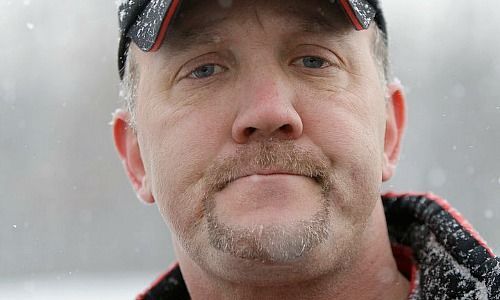Canada: «No, Thanks» to UBS Whistleblower
UBS whistleblower Bradley Birkenfeld offered to help Canadian authorities root out tax dodgers. He got a surprisingly cool reception.
Bradley Birkenfeld was paid the highest-ever U.S. whistleblowing reward: $104 million. Thanks to the former UBS banker, U.S. officials were able to track and recoup billions in previously undisclosed tax dollars from wealthy Americans.
The Swiss bank paid $780 million eight years ago to settle a criminal investigation. By that time, Birkenfeld had already contacted tax investigators in Canada, sending them confidential information on tax dodgers, he told Canadian publication «Financial Post».
$1 Billion Stowed
Birkenfeld's documents contained names of UBS bankers, details on $5.6 billion held by Canadian clients, and his estimate that the government was missing out on $1 billion in lost tax revenue.
If Birkenfeld expected to be treated as the key witness by Canada, his would have been quickly disappointed. Canada has never questioned the whistleblower about the documents.
The Canadian government also held off from orchestrating a broad campaign against UBS, as the U.S. successfully did and like France is currently attempting, and there have been no criminal proceedings against Swiss bankers.
Light-Touch Canadian Regime
Instead, the U.S.' northern neighbor offered tax dodgers an out: they would escape fines if they came forward and paid their taxes, at a reduced rate of interest.
Roughly 3,000 UBS clients have made use of the amnesty, paying $270 million to the Canada Revenue Agency, or CRA. Birkenfeld has noted that this is roughly one-quarter of what Canada stands to gain by shaking out all tax crooks.
The newspaper confronted UBS with Birkenfeld's information and the $1 billion lost tax revenue estimate. A spokesman said merely that the bank was «not particularly anxious to have a comment.»
Too Mild, or Good Strategy?
Birkenfeld has the backing of at least one prominent transparency advocate: University of Montreal professor and book author Alain Deneault thinks that wealthy Canadians are getting off lightly.
He cited the CRA's no-penalties deal offered to wealthy clients of auditing firm KPMG, who helped create shell companies as a way to avoid tax on investment income.
Others see Birkenfeld's campaign as an exercise in public relations to spur sales of his recently-published book. Tax lawyer David Sohmer told the «Financial Post» that most of the UBS clients that Birkenfeld ratted out had already declared themselves to the CRA.
AEoI with Canada
Birkenfeld, who left UBS 12 years ago, doesn't have information that would help Canadian officials today, according to Sohmer. Canada has been far more successful with its lenient approach than it would have been by pursuing the bank, advisors and clients criminally, as Birkenfeld advocates.
In addition, Canada has begun exchanging client data with Switzerland this year – and maintaining declared offshore accounts isn't a crime.
Canada's lenient approach has been successful so far, but it has not disclosed any reprisal against offshore banking clients who haven't come forward.
Correspondence Vanished
Birkenfeld is convinced Canada's light-touch approach is misguided. A lengthy exchange with a Canadian justice official has apparently disappeared, for example.
The former UBS banker, who has had some trouble adjusting to life after prison and banking, insists his campaign is not to juice sales of his book. «I’ve got enough money. It’s the right thing to do.»
Asked why he doesn't simply let it go, Birkenfeld says, «If you ask your mother for the keys to drive the car and she never gives them to you, you keep asking. That’s, in essence, what we’re talking about.»


























